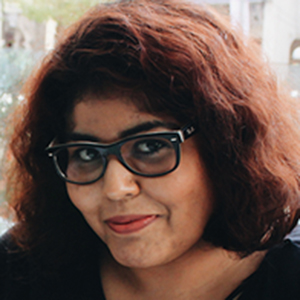In her article "Privilege 101: A Quick and Dirty Guide", Sian Ferguson defines privilege as “a set of unearned benefits given to people who fit into a specific social group”.
She explains that “privilege doesn’t mean your life is easy or that you didn’t work hard. It simply means that you don’t have to face the obstacles others have to endure. It means that life is more difficult for those who don’t have the systemic privilege you have.”
In a women’s empowerment workshop I attended late last year, the facilitator asked those among the group who believed that they were privileged to step forward.
I stepped forward – I who was a college dropout in a group of women that included lawyers, corporate types, degree holders and women leaders.
I never really thought I was privileged until I had a talk with a friend of mine when I had nonchalantly mentioned that I never experienced sexism while I was growing up. My parents gave me leeway and the freedom to pursue my passions,
I do not remember being told no for something on the basis of my gender and I was told that I could become anything (career-wise) as long as I worked for it.
Sure, I was asked to help my mother in the kitchen some times, but most of my (and my brother’s) chores was cleaning up the house, which was the domain of my father.
My friend, on the other hand, grew up in a household that imposed more rigid gender roles – she had to help her mother in the kitchen while her brother played with his friends. That she was expected to serve her father and brother at mealtimes was a shock to me.
Then she said to me “not every woman has had the privilege of growing in a family that does not differentiate in their treatment between their sons and daughters”.
Those words hit me with such a force, simply because it was the truth for many women. Privilege was not something I had ever associated with myself and yet when compared to some, I come from a more privileged background.
I once scoffed when I read that Beyonce had told Oprah, “I would not be the woman I am if I did not go home to that man.” The man she meant was her husband Jay-Z. I found it as an affront to women for here was one of the world’s most influential woman telling Oprah that she owed everything she had to her husband, not her hard work, not her business saviness or inherent amazingness (yes, I gush about Queen Bey, but I also criticise her a lot, so cut me some slack here alright).
But then it got me thinking about myself (remember, intersectional feminism requires critical self-reflection and self-work). Why was it that many a times I have had women telling me how lucky I am to have a husband who is supportive of my endeavours, who understands my needs and “gives” me the freedom to pursue my education and writing goals?
Most recently, a friend of mine – a woman whom I look up to – made the same remark after my poetry-reading session at the George Town Literary Festival. This remark certainly took me aback and left me trying to decipher what it meant for days later.
That was when it hit me – I would not be the woman I am if I did not go home to that man. It also meant that I would not be the woman I am if I had not gone home to my parents for they did not raise me to become someone’s wife or mother.
As for my husband and I, having the freedom to pursue our goals is not a for dominance or power, but one of mutual encouragement for mutual growth.
But that is not how the world at large operates, does it?
I know of a woman whose husband divorced her because he did not want her to pursue her masters degree. He wanted her at home, looking after their children and depending on him for her living. Her parents have ostracised her, firmly taking sides with her ex-husband.
Another friend was never allowed to eat any of the meat her mother cooked at home as they had a rule that only the sons of the family deserved meat. One former college mate had to leave her family and move halfway across the country to attend college for the religion her family followed preaches that women of childbearing age must follow the ways of the family. Mind you, this last case was in America.
My life is certainly not easy, but it is easier than some because I did not have to fight for the right to education and for the right to equal treatment from my parents, nor for the right to being considered an equal partner in my marriage.
This also means that because my lived experience is such, I cannot expect every other woman I encounter to have similar privileges in their life and project onto them the same expectations that I have for myself. – January 18, 2015.
* This is the personal opinion of the writer or publication and does not necessarily represent the views of The Malaysian Insider.


Comments
Please refrain from nicknames or comments of a racist, sexist, personal, vulgar or derogatory nature, or you may risk being blocked from commenting in our website. We encourage commenters to use their real names as their username. As comments are moderated, they may not appear immediately or even on the same day you posted them. We also reserve the right to delete off-topic comments